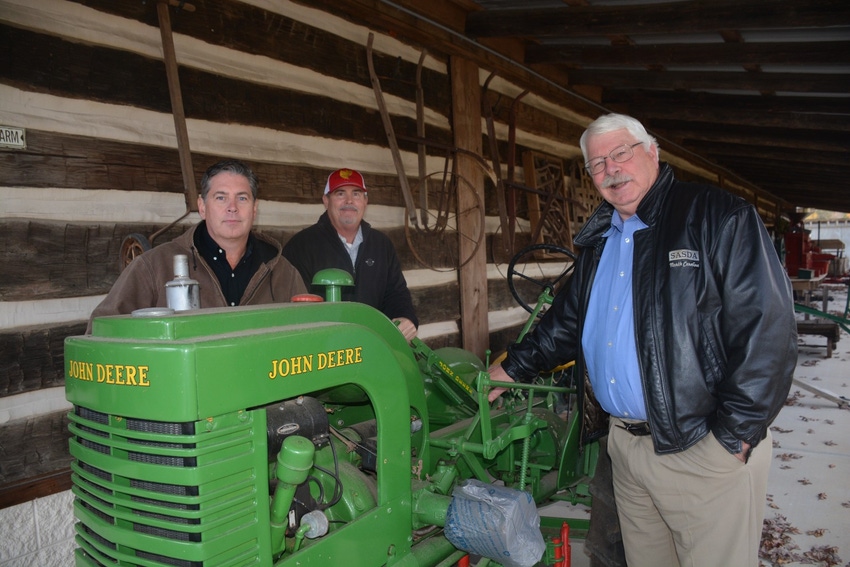
Of all the candidates on the Nov. 3 General Election ballot in North Carolina, none received more votes than Agriculture Commissioner Steve Troxler.
Troxler, a Republican, was elected to his fifth term as North Carolina agriculture commissioner with 2,901,849 votes. That’s more than Gov. Roy Cooper, a Democrat, who received 2,834,790 votes; more than President Donald Trump who received 2,758,773 votes and more than Republican Sen. Thom Tillis who received 2,665,598 votes.
“If I knew exactly how I did it, I’d be a dangerous man,” Troxler said with a laugh when he was asked by Southeast Farm Press how he managed to be to top vote getter on a ballot that included other key positions, including president, governor and U.S. senator. Troxler added that he was also the top vote getter in the 2016 general election in North Carolina.
Troxler credits his strong numbers to the people who work in the North Carolina Department of Agriculture and Consumer Service (NCADACS) and to the fact the department does come in contact with most citizens of North Carolina, particularly through the Department of Consumer Services, which handles scanners, weights and measures, gasolines pumps and other services.
“We (NCDACS) have a lot of contact with the public. But it still comes down to having a built-in base that is the largest industry in North Carolina. I think that’s the real answer. And their willingness to work, that is what made the difference,” Troxler said in an interview with Southeast Farm Press at his farm in Browns Summit, N.C.
Educating non-farming public
As he begins his new term on Jan. 1, Troxler stresses that education of the non-farming public on the importance of agriculture, the state’s largest industry, will be priority one for his next four-year term.
For example, he said the public needs to me made aware that farmers are the good guys when it comes to addressing the challenges of climate change because no one does more to protect the climate on a day-to-day basis than farmers. He said farmers deserve credit for the steps they take to protect the climate.
“We need to pull everybody in ag together to educate the public as to what a farmer really is. To me it’s scary when I know that two percent or less of the population is raising the food not only for the United States, but for many people around the world. We are that good at what we do. During the pandemic there was never a shortage of farm commodities, no shortage of protein, no shortage of milk,” Troxler said.
While there were hiccups in distribution, there was never a shortage of food supply during the pandemic which Troxler says is a testament to North Carolina agriculture.
Crisis management
In the meantime, Troxler said his main job over the past four years was mostly crisis management. He said the COVID-19 pandemic in 2020 was the worst crisis for North Carolina agriculture he has seen, worse than Hurricanes Florence and Michael in 2018.
Troxler credited the Disaster Relief Package of $240 million unanimously approved by both houses of the Legislature and signed into law by Gov. Roy Cooper on Dec. 4, 2018 for helping North Carolina farmers overcome the devastation of two hurricanes.
“We were able to come up with a fix with the amount of money the legislature put forward,” he said.
And he credits the two Coronavirus Food Assistance Program (CFAP) packages for helping farmers overcome lost sales from the coronavirus. Still, Troxler said COVID-19 presented numerous challenges to North Carolina farmers, particularly in getting temporary labor safely into the state during the pandemic to work the fields and harvest the crops.
“Then worker health became a big issue. The department worked hand in hand with DHHS (the North Carolina Department of Health and Human Services), commodity groups, and the governor’s office to do what we could do to keep these workers safe. We all know that if you’ve got sick workers then you have big problems,” he said.
On pace to $100 billion industry
Troxler said agriculture is on pace to be a $100 billion industry in North Carolina. Currently, agriculture and agribusiness is a $92.7 billion industry. Troxler believes such initiatives as the North Carolina Plant Sciences Initiative, the Food Processing and Manufacturing Initiative, and the Food Animal Initiative will help the state soon reach the $100 billion goal.
Troxler said he looks forward to another term serving as North Carolina agriculture commissioner. He was first elected in 2004. He also believes it is critical that the agriculture commissioner be a farmer, someone who actually earns income as a farmer.
“There is a law in North Carolina that says the commissioner of agriculture has to be a farmer. I would hope our legislature will figure out how to strengthen that. I can’t imagine somebody sitting in this seat who hasn’t been in agriculture,” Troxler said.
He stressed the agriculture commissioner must be a person who “has the experience down in the trenches, making a payroll, dealing with all the issues that farmers deal with from weather to diseases, you name it.”
Troxler was raised in the Guilford County community of Browns Summit and has spent his entire career in agriculture as founder, owner and operator of Troxler Farms. Over the years, the family-owned farm has produced tobacco, wheat, vegetables and soybeans.
About the Author(s)
You May Also Like






